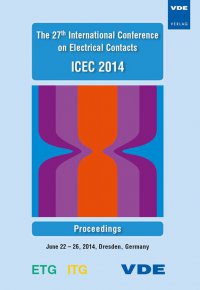Arc Blowing for Different Shape Silver-Tin Dioxide Contacts using External DC Magnetic Field
Conference: ICEC 2014 - The 27th International Conference on Electrical Contacts
06/22/2014 - 06/26/2014 at Dresden, Deutschland
Proceedings: ICEC 2014
Pages: 6Language: englishTyp: PDF
Personal VDE Members are entitled to a 10% discount on this title
Authors:
Kayano, Yoshiki (Department of Electrical and Electronic Engineering, Akita University, Akita, Japan)
Inoue, Hiroshi (Akita Study Center, The Open University of Japan, Akita, Japan)
Abstract:
So far, many papers have contributed to arc-extinction by applying magnetic field, cooling the contact, increasing pressure in relay housing, and additional circuit. For mitigation of problems, general studies for design methodology and geometrical-structure for contact electrode itself are indispensable. The main goal of this study is to clarify the arc-characteristics with different surface and shape conditions and to acquire basic insights for designing way for appropriate electrode structure for arc blowing by magnetic field. Silver-tin-dioxide material is chosen as typical contact material. To discuss the effects of step, decrement of area, and direction of Lorentz force, different contact shapes are prepared: “R-type” (normal shape), “R_polish” at which R-type is polished by sandpaper, and “R_deform” at which R-type is deformed so that contact has step asymmetrically. The concept of making step is to 1) suppress the movement of arc-column from edge to center of the contact, 2) make limitation of area at which arc-column can move. Breaking waveforms and aspects are measured. Arc-duration in the “R_deform, but directions of step and Lorentz force are opposite” is the shortest in all conditions. These results are basic and useful finding and consideration to clarify not only the contact-breaking phenomena but also the design methodology of contact electrode.


